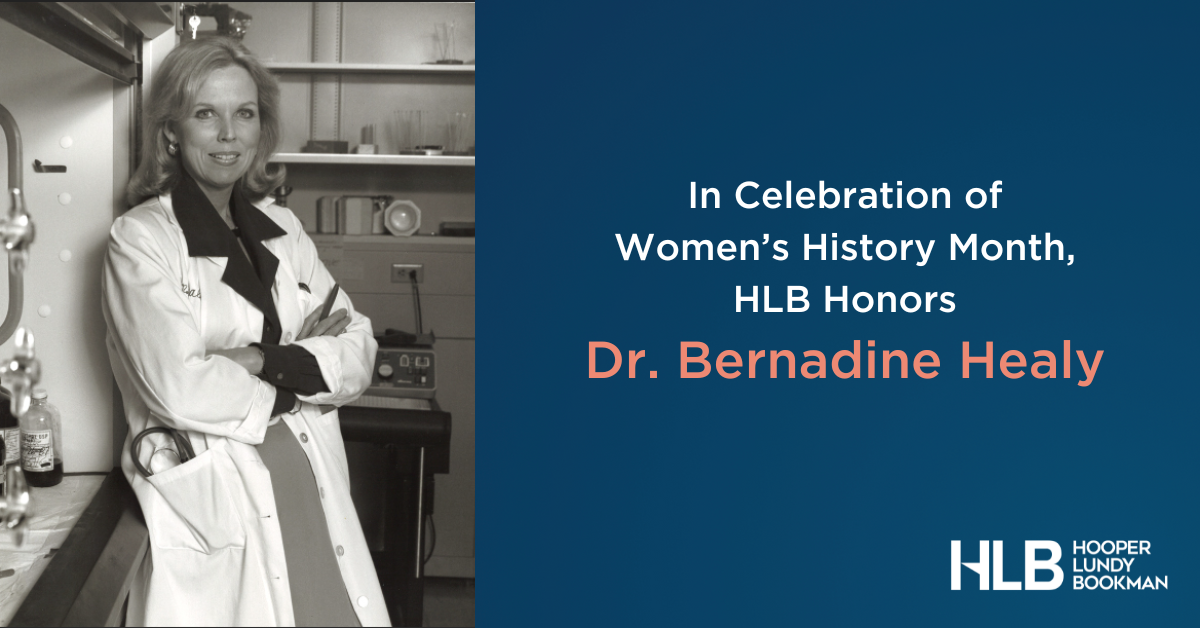
In honor of Women’s History Month, we present Dr. Bernadine Healy, the first woman appointed as Director of the National Institutes of Health (NIH). Dr. Healy launched the notable NIH Women’s Health Initiative, the largest women’s health prevention study ever conducted.
Dr. Healy graduated in 1970 as one of only ten women in her class at Harvard Medical School and completed her internship and residency in internal medicine and cardiology at the Johns Hopkins School of Medicine and Johns Hopkins Hospital.
In 1984, Dr. Healy was appointed by Ronald Reagan as the deputy director of the White House Office of Science and Technology Policy and served on the President’s Council of Advisors on Science and Technology during the administrations of Presidents George H.W. Bush and George W. Bush. In 1991, she was appointed as the Director of NIH during a difficult time for the research agency, which had been without a permanent leader for nearly two years. Not only did Dr. Healy advance the agency from its challenges, but she also notably established a policy whereby the NIH would fund only clinical trials that included both men and women when the condition being studied affected both sexes, which was a policy shift from the NIH’s past portfolio of research targeted at men.
As part of Dr. Healy’s efforts to elevate the study of women by the NIH, she launched the Women’s Health Initiative (WHI) in 1991. Sometimes called “the moon walk for women,” this far-reaching health study remains the largest randomized clinical trial in history to involve only women, with over 150,000 postmenopausal women participating. The study focused on the effects of and prevention strategies for heart disease, breast cancer, osteoporosis, and colon cancer. Due to the efforts of Dr. Healy and the WHI studies, modern medical professionals can consult data on how differently diseases present in men and women. The WHI estimates there are 76,000 fewer cases of cardiovascular disease and 126,000 fewer cases of breast cancer due to this research.
In addition to Dr. Healy’s NIH tenure, she served as President of both the American Red Cross and the American Heart Association. As president of the American Heart Association, she made it a priority to convince the public and medical community that heart disease was not just impacting men and in 1988, she launched the Women and Minorities Leadership Task Force and the Women and Heart Disease campaign.
In 2001, Dr. Healy led the American Red Cross’s response to the terrorist attacks of September 11, which included immediate recovery and response, widespread volunteer coordination, the creation of a strategic blood reserve from “extra” blood collections, the founding of a $200 million family grant program for victims’ families, and instituting grieving and healing programs at local American Red Cross chapters across the country.
Dr. Healy’s work dramatically impacted the lives of many women by spreading public awareness about how diseases and other health issues manifest in women, as well as by improving studies to focus on women’s health.